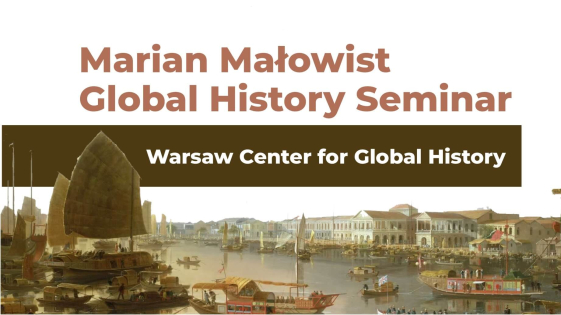Global Approaches to Visual Political Dissent in the Early Modern Period
Please join us for the next Marian Małowist Global History Seminar!

The guest of the Marian Małowist Seminar will be Jorge Flores (University of Lisbon). He will present a talk titled: ‘Global Approaches to Visual Political Dissent in the Early Modern Period’.
Jorge Flores is coordinator researcher, Centro Universitário de História das Ciências e Tecnologia (CIUHCT), University of Lisbon, and has previously taught at the University of Macau, Brown University, and the European University Institute (Florence). Flores specializes in the history of the early modern Portuguese empire in Asia as well as on the social and cultural history of politics between Europe and South Asia in the same period. His latest books are Unwanted Neighbours: The Mughals, the Portuguese, and their Frontier Zones (OUP, 2018) and The Accidental Persianate State: The Portuguese Empire in the Indo-Persian World (forthcoming). With Giuseppe Marcocci, he is currently working on a book about visual expressions of political dissent in the early modern Iberian world.
Abstract
“Global Approaches to Visual Political Dissent in the Early Modern Period” stems from an ongoing collaborative project on forms of political struggle manifested through images, objects, and performances in a series of Iberian overseas urban contexts, with particular reference to Mexico City, Lima, Goa, and Manila. The talk focuses on particularly pervasive and widespread tools of political insult and social denigration across the early modern world: the distaff and the donkey, two truly global “objects” of offense.


